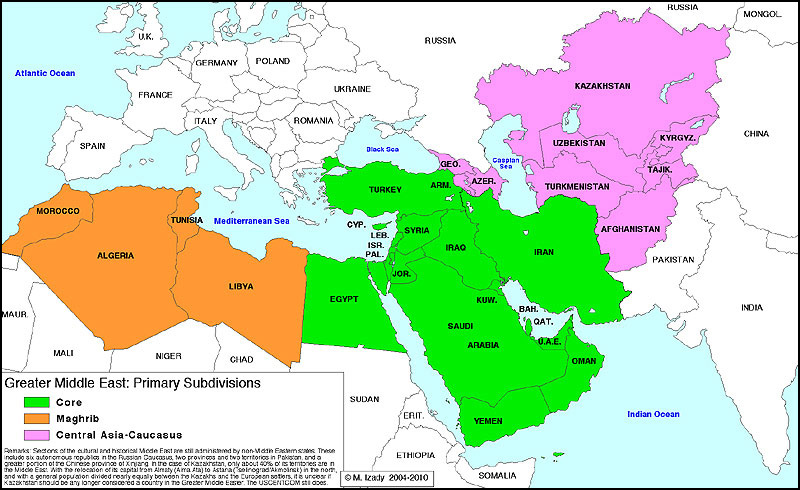
Following up on last night’s post about Syria, let’s do an assessment. How has America done in its various military interventions in the Greater Middle East (spanning North Africa through Central Asia)? This has to be judged against (a) the goals of each intervention and (b) the long-term consequences. Here’s a quickie list of the major interventions since the Reagan Era:
- Lebanon, 1982-83. The goal was peacekeeping following the Israeli “Peace for Galilee” invasion. It didn’t end well.
- Afghanistan, 1980s. This wasn’t meant to be a “Middle East intervention.” Its goal was to make trouble for the Soviet Union. In that sense it worked—though the Soviet Union would have fallen without it. But regardless of how we meant it, it was a Middle East intervention and it was one of the catalysts of al-Qaeda. Needless to say, this makes it an unqualified disaster.
- Gulf War, 1991. The goal was to push Saddam Hussein out of Kuwait. It worked. In the long term, though—well, we all know about the long term, don’t we?
- Somalia, 1992-93. Didn’t go well.
- Afghanistan, 2001-Present. The primary goal was to destroy al-Qaeda, but it was nebulous beyond that. It probably could have been successful if the Bush administration had stayed focused on the mission, but they didn’t.
- Iraq, 2003-Present. Didn’t go well.
- Libya, 2011. Didn’t go well.
You could add a few others if you want—Pakistan, Yemen, the Iran/Iraq war—but I’m just hitting the highlights here. Without getting into endless arguments over details, the bottom line is that the US has had seven major interventions in the Greater Middle East over the last 40 years and either six or seven failures, depending on how you evaluate the Gulf War. In fairness, I’d add that the post-9/11 mission in Afghanistan could have been fairly successful if it had been limited and properly staffed. Most likely, that was a failure of political stupidity, not an inevitable result.
Excuses aside, though, the roll call is grim. The goals of American interventions have spanned the gamut from modest peacekeeping to regime change. With one arguable exception, none of these interventions had a positive impact on either the Middle East or the interests of the United States. Taken as a whole, they’ve been instrumental in creating the War on Terror we’ve been fighting since 9/11. Anyone who wants to be taken seriously when they argue for further US interventions needs to honestly engage with this history and then explain why this time will be different. And it better be a pretty good explanation.

















